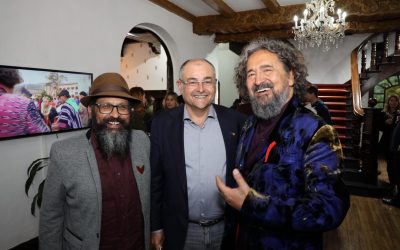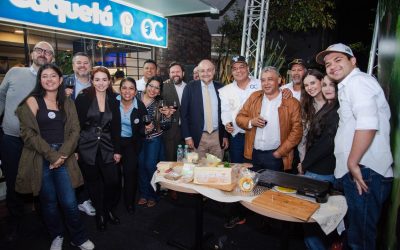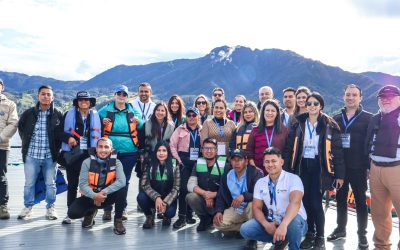The European Union (EU) was set up after the Second World War. For more than twenty years the EU has supported Colombia in its aim to peacebuilding.
Two special programs: Peace Laboratories (2002-2012) and New Peace Territories (2012-2017), show how methodological transfers and capacity building activities could contribute to conflict-affected territories peaceful and sustainable development.
This broad experience is capitalized by the European Trust Fund for Peace in Colombia as an effective mechanism to respond to the government of Colombia’s request for assistance and channel the resources in a structured and efficient way. Furthermore, the Fund demonstrates the solidarity and political support of the EU for this important peace process and also promotes the general interests of the European Union as a whole. The EUTF is made up of the EU itself, 21 of its Member States, the United Kingdom and Chile, and all of them work towards the same goal: to promote the generation of scale economies and accomplishing this to reach the utmost impact with efficiency.
The EU has extensive experience in rural development, land restitution and local productive development, and the Fund´s objective is to support Colombia on comprehensive rural development in the territories most affected by the conflict, enhance economic and productive activities, strengthen state presence, rebuild the social fabric of communities and support the social and economic reincorporation of ex-combatants.
Strategic Pillars
The European Fund for Peace’s strategy in Colombia comprises six pillars. 31 interventions, regardless of their particular approaches, share common objectives andcontribute to generating impact in terms of social transformation.
These six pillars help analyze the Fund’s impacts and each project’s specific contribution to peace implementation and the construction of equity, equality, transformation, and coexistence in Colombia.

Reconciliation
and conflict
de-escalation

Social and economic
reincorporation of
former combatants

Social inclusion:
youth, women and
ethnic groups

Sustainable
and inclusive
productivity

Institutionalization
and state
legitimacy

European
Union value
added
Geographic scope of the Fund
The European Trust Fund works throughout the Colombian territory. It prioritizes the areas most affected by the armed conflict, based on specific needs of, and paying special attention to, vulnerable, rural municipalities that require priority measures. Currently, the EUTF works in 26 departments and 181 municipalities, 81 of which are PDET municipalities (Development Programs with a Territorial Approach) and 17 correspond to Special Plans for Comprehensive Intervention in Strategic Areas of Comprehensive Intervention – Future Zones.
RELATED NEWS
Una sola Tierra, Una sola Humanidad: el Campamento de los Caminantes Enamorados llega a Bogotá
En el marco del Mes de Europa, el Instituto Italiano de Cultura de Bogotá presenta, del 5 al 25 de mayo, la exposición “Una sola Tierra, Una sola Humanidad. El Campamento de los Caminantes Enamorados”, una muestra que celebra el diálogo entre el arte contemporáneo,...
Caquetá, con su producción láctea, es símbolo de competitividad, sostenibilidad y construcción de paz
Con una producción diaria de 2.200.000 litros de leche, Caquetá se posiciona como una región clave en la cadena láctea de Colombia. Parte de esta leche da origen a quesos únicos, que fusionan tradición con ingredientes amazónicos, ofreciendo una experiencia que...
Nariño, destino de oportunidades: el poder de las alianzas para el desarrollo territorial
El Embajador de la Unión Europea en Colombia, Gilles Bertrand, se encuentra en Pasto para participar en “Nariño, destino de oportunidades”, un evento liderado por la Unión Europea en coordinación con la Gobernación de Nariño y la Cámara de Comercio de Pasto. Este...



